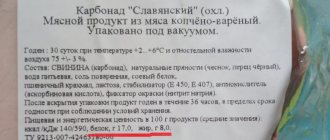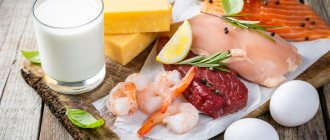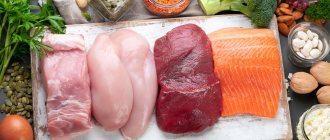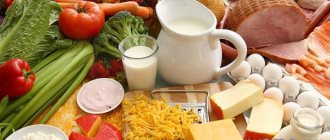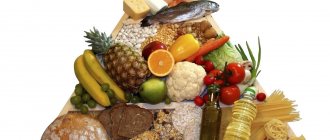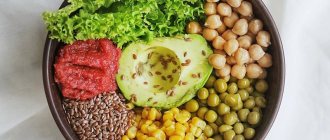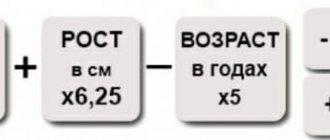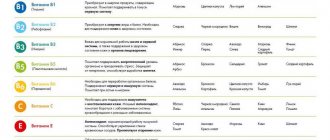Dec-27-2019 Author: KoshkaS
How many calories are in the white of a chicken egg, what dietary properties it has, all this is very interesting for those who are trying to lead a healthy lifestyle, monitor their health and figure. So we will try to answer these questions in the next article.
So here it is:
Chicken eggs occupy a prominent place in the menu of modern man. They are one of the healthiest foods. All the nutrients in eggs are balanced and well absorbed by the body.
A chicken egg contains 12.7% complete animal protein, containing essential amino acids, and 11.5% fat. They contain various vitamins: A, B1, B6, D and E. The yolk is richest in vitamins. The egg contains many useful minerals, including phosphorus, iron, calcium, potassium, as well as trace elements (iodine, copper, cobalt).
How to boil an egg correctly:
- Never boil eggs straight from the refrigerator because cold eggs are likely to burst if immersed in hot water.
- Use a kitchen timer. Trying to guess the time, or remember to look at the clock, you will not achieve the desired degree of “cookiness”.
- The pan should preferably be small, because if you boil several eggs in a large pan, they may break against each other.
- At the blunt end of the eggs, inside, there is a pad where air collects. Usually, during boiling, the pressure there increases, and as a result, the egg may crack. To avoid this, pierce the egg with a needle and let the steam escape.
- Never put eggs on high “fast” heat, cook on medium. If you don't use a timer, don't cook the eggs for too long - the yolks may turn black and literally become rubbery.
- If the eggs are very fresh (less than four days old), they will take a little longer - about 30 seconds.
And about calories:
Calorie content
The benefits of the egg yolk, as well as its white and shell, are beyond doubt. But another parameter deserves no less attention - the calorie content of the product. On average, 100 grams of chicken egg contains 150-160 kcal . But here a lot depends on the size and weight of the product (40-70 grams), as well as the method of preparation:
- Raw egg calories . Fans of a healthy lifestyle and proper nutrition recommend eating raw eggs. On the one hand, such a product is better absorbed by the body, but on the other hand, there is a risk of becoming infected with salmonella. The danger is that when buying eggs at the market, we do not know how strict the sanitary control is. Not every place pays due attention to product processing. As for nutritional value, one raw egg contains 70 kilocalories, and 100 grams - 150-160 kcal.
- Calorie content and composition of boiled eggs. It is believed that raw eggs provide the greatest benefit to the body, but due to the risk of salmonella infection, they should still be boiled. Let's consider each of the elements separately:
- The calorie content of protein is 17-20 kcal, which is on average 25-30% of the total. There is no fat in this part of the product, and there is a full amount of carbohydrates beneficial for the body.
- The calorie content of the yolk is 55-60 kcal. It contains a large amount of vitamins, carbohydrates, proteins and fats.
- Hard-boiled . It is believed that the calorie content in such a product will be the same as in the case of a boiled product. But this is not true, because the calorie content of the yolk of a chicken egg (as well as the white) is 10-20% less. That is why the hard-boiled product is recommended for people on a diet. The advantages of such a product are the ability to be stored for a long time (up to 8-10 days), preservation of all vitamins and excellent taste.
- Soft-boiled . The advantage of this cooking method is that it preserves the beneficial properties of the product. The calorie content remains the same as that of a hard-boiled egg. To prepare, 3-5 minutes of cooking is enough. As a result, the white is ready, and the yolk is semi-liquid.
- Frying . To calculate the calorie content of chicken yolk, take into account other products used in the cooking process. If oil is not used during frying, then the amount of calories (for one egg) is 110-120 kcal. As soon as you add oil to the pan, the calorie content of the product more than doubles. On average, one fried egg contains 170-180 kcal. For this reason, this method of preparation should be excluded when dieting or following proper nutrition in general.
If scrambled eggs are your favorite dish and you have no desire to give it up, then you are allowed to fry only the whites. In this case, you reduce the amount of carbohydrates to a minimum, and there will be no fat at all.
What will be the calorie content if you make an omelet from two eggs? On average, this figure will be 120-140 kcal . If you use only protein, the calorie content is reduced by 30% . When calculating, take into account additional ingredients such as cheese, tomatoes, peppers and others. On average, 100 grams of omelet can bring the body 330-350 kcal . In the absence of contraindications, such a breakfast is very useful - it provides the necessary boost of energy, gives additional energy and lifts your spirits.
Categories of chicken eggs
There are dietary ones, which can be stored for no longer than 7 days (marked with the letter D) and table ones (C) with a more impressive shelf life. Depending on the size, according to GOST R 55502-2013, products are divided into categories:
| Category | Letter designation | Weight 1 piece, g |
| Higher | XL | 75 g or more |
| Selective | L | 65-74,9 |
| First | M | 55 to 64.9 |
| Second | S | 45-54,9 |
| Third | no designation | 35-44,9 |
The price depends greatly on the category: the larger the product, the more expensive it is. But this has little effect on the nutritional value (the ratio of BJU and calorie content): 1 large or 2 small pieces provide the same benefits to the body.
How long can egg whites be stored in the refrigerator?
The shell is a reliable barrier; it protects the contents from spoilage for 20 days without refrigeration. If the product is kept at a temperature of 0 to 5 degrees, then it can be consumed for 60 days. Separated egg whites are a different matter entirely. They can be stored in the refrigerator for no longer than 5 days in a closed jar. For longer storage, it is better to freeze them. True, in this case they partially lose their ability to whip into a fluffy foam.
The amount of protein in one egg is not the highest when compared to other animal products. But it is the most complete, including absolutely all essential amino acids. Because of this, steamed omelettes are allowed on all diets.
How does a chicken egg work?
This is a useful and popular product because it includes a full set of essential amino acids, vitamins, and mineral compounds. Its structure is as follows:
- Shell. It is durable, but has pores for the exchange of air and moisture with the environment. Its thickness is from 0.3 to 1.6 mm. This is an inedible part for humans, which can be used to feed birds, as fertilizer and for decorative mosaics.
- Protein. The liquid part contains a lot of water (85%), it is denser in the middle. It forms two cords inside. It is separated from the shell by a pair of shells.
- Yolk. It is located in the middle of the protein. It concentrates half of the dry matter of the product with a predominance of proteins and lipids. Viscous, has a thin shell.
The size and weight, color and density of the shell, the shade of the yolk and its size greatly depend on the breed of chickens and the diet of their feed.
Summarize
- A hard-boiled egg is a low-calorie, nutrient-rich food.
- Eggs are an excellent source of high-quality protein and are rich in B vitamins, zinc, calcium and other important nutrients and antioxidants such as choline, lutein and zeaxanthin.
- Despite their high cholesterol levels, eggs do not appear to increase the risk of heart disease in most people.
- Boiled eggs are cooked without adding oil, so they contain fewer calories and fat than scrambled eggs.
- They can be one of the easiest and healthiest foods to add to your diet.
Eggs
Egg diet for 2, 4 weeks
The duration of such diets is longer and therefore requires significant willpower. The requirements for preparing basic foods for daily consumption are similar to the seven-day diet.
Meals for 14 days
For the entire time of dietary restrictions, the morning meal is always 0.5 citrus fruit and no more than two eggs. The instruction on the use of fruit means that you need to choose from acceptable fruits: apple, pear, watermelon, plum.
Vegetable stew can be tomato-cucumber, pepper or carrot based, no oil is added. Any meat should not be fatty; it can be boiled, baked, cooked using a double boiler or in the microwave.
The use of any oil with such a diet is unacceptable.
The program is for 14 days. The lack of an exact volume of product means that there are no strict restrictions.
| Food Time | First 7 days | Days 8 to 14 | |
| Day 1 | during the day | fruit | meat, vegetable stew |
| In the evening | meat 200 g | 2 eggs, vegetable stew, 1 citrus | |
| Day 2 | during the day | chicken | meat, vegetable stew |
| In the evening | vegetable stew, 2 eggs, a small piece of soft bread, 1 citrus | 2 eggs, vegetable stew, 1 citrus | |
| Day 3 | during the day | low-fat cheese, tomato, 1 toast | cucumber, meat |
| In the evening | meat 200 g | 2 eggs, vegetable stew, 1 citrus | |
| Day 4 | during the day | fruit | low-fat cheese, 2 eggs, vegetables |
| In the evening | meat, vegetable stew | 2 eggs | |
| Day 5 | during the day | zucchini, carrots, beans, 2 eggs | lean boiled fish |
| In the evening | lean fish, vegetable stew, 1 citrus | 2 eggs | |
| Day 6 | during the day | fruit | 1 citrus, meat, tomato |
| In the evening | vegetable stew, meat | 1 citrus, meat, tomato | |
| Day 7 | during the day | zucchini, carrots, beans, 2 eggs | chicken, 1 citrus, tomato, boiled vegetables |
| In the evening | lean fish, vegetable stew, 1 citrus. | chicken, 1 citrus, tomato, boiled vegetables |
By adhering to the restrictions for 14 days, you can lose 4-7 kg.
How does cooking eggs affect protein quality/quantity?
You've probably heard that eating raw eggs helps improve your fitness. Why? It is known that cooking foods often reduces the content of many nutrients, but it also helps the body absorb much more of the precious protein.
When heated, the amount of protein in the egg does not change, but increasing the temperature changes the structure of the proteins in the egg. This process is called denaturation, which means the proteins are no longer biologically active. When an egg is raw, the bioactive proteins sometimes bind together, preventing the body from absorbing them, but once they have been cooked and denatured, this is no longer a problem.
One study found that our bodies can only absorb 50% of the protein in raw eggs, compared to 90% of the protein in boiled eggs. This makes boiled eggs a much better way to access proteins and also reduces the risk of food poisoning.
Cholesterol level
For many years, eggs have had a bad reputation due to their high levels of cholesterol.
It's true that eggs contain a lot of cholesterol. One large hard-boiled egg contains 212 mg of cholesterol, which is 71% of the RDA (1).
However, recent studies show that dietary cholesterol has very little effect on blood cholesterol levels (7, 8).
For most people, dietary cholesterol is not associated with cardiovascular disease risk and does not increase total cholesterol or “bad” LDL cholesterol (9, 10).
In fact, consuming eggs may improve your levels of “good” HDL cholesterol (7, 11, 12).
Additionally, two studies that examined data from more than 100,000 healthy adults found that eating one whole egg per day was not associated with an increased risk of cardiovascular disease (12).
However, people with diabetes should exercise caution when consuming eggs, as some studies suggest that eating 7 eggs per week may increase the risk of developing cardiovascular disease (13).
Ultimately, more research is needed on the relationship between egg consumption and the risk of cardiovascular disease in people with diabetes.
Summary:
Although hard-boiled eggs are high in cholesterol, research shows that dietary cholesterol does not negatively affect blood cholesterol levels in most people. Eggs have been found to improve cholesterol profiles by increasing levels of "good" HDL cholesterol.
Where is there more protein in chicken eggs or quail eggs?
Quail eggs have their advantages: they do not contain salmonellosis, they are less likely to cause allergies, and contain more macro and microelements. But if we talk about the concentration of proteins, quail contains 11.9%, according to this indicator they are slightly inferior to chicken, they also have fewer calories (158 kcal per 100 g).
